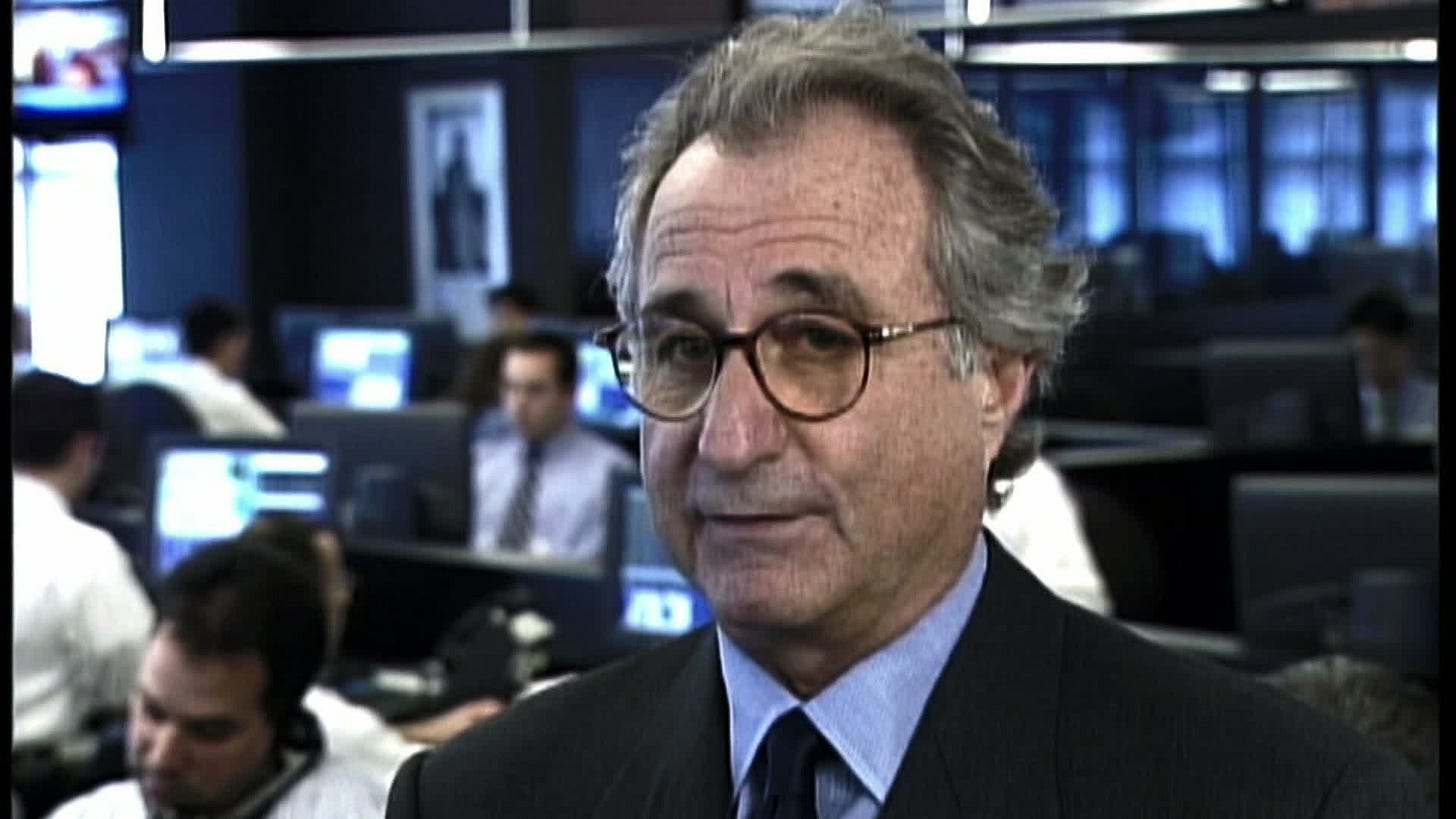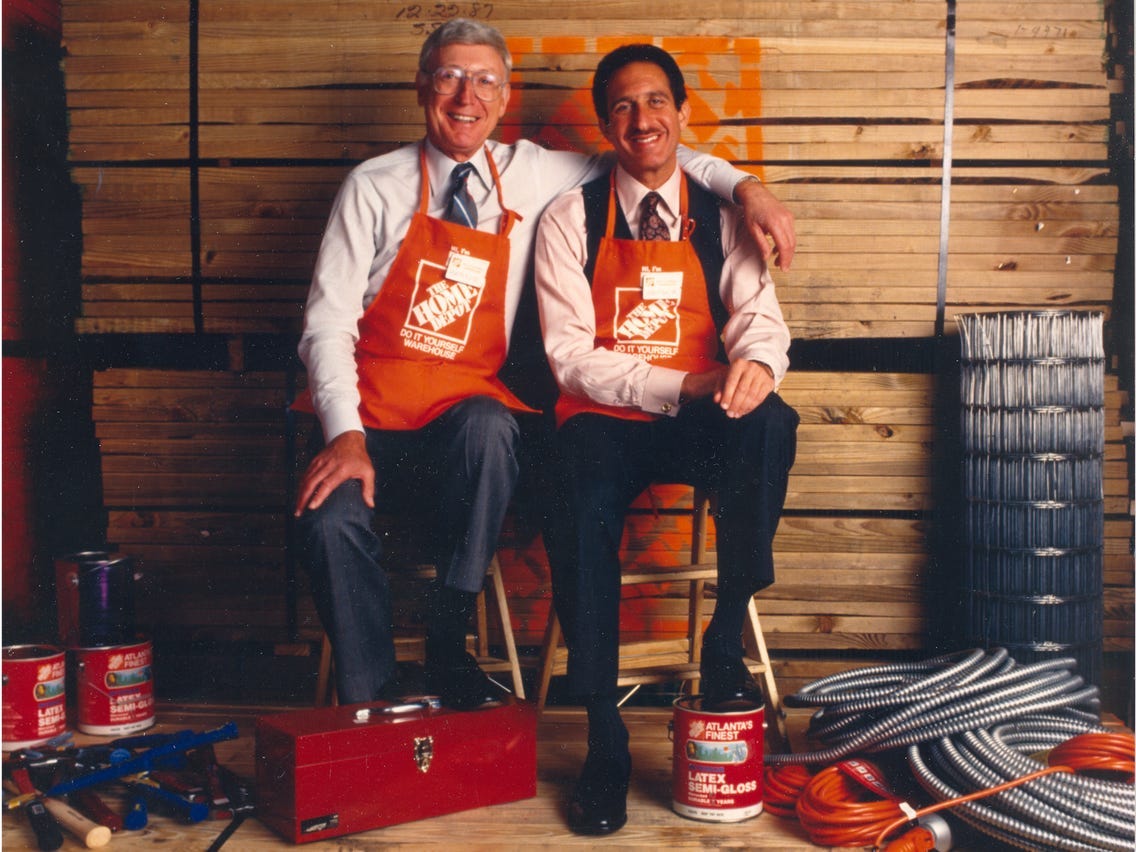How We Win - part two
Give them money!
This is a tale of two Bernies. Both inspired me. Both had brilliant ideas. Both have been very successful. And both disappointed me. I am NOT referring to Bernie Madoff who could be described as the King of Disappointers.
The problem with Democrats and their messaging is that they talk so much about policies and gripe so much about justice that people’s eyes glaze over. For those with enough money, it is interesting to read about the growth of GDP and a shrinking unemployment number. It’s good stuff! And the wonkier ones…we love to reflect on the impact of interest rates and how the tax code is unjust. Blah, blah and blah.
If you are a family of four or five struggling to pay for childcare as you work at an underpaid job where the health insurance is substandard - you exist in a never ending danger zone of financial terror. Chances are you are yelling a lot at the kids and/or each other. There could be more drinking leading to more yelling. The stress of almost losing everything is like a big, wet, heavy blanket suffocating you from the moment you awake until you finally pass out from emotional exhaustion. Hopelessness is devastating. And there is little reason to think about national statistics. Yup, the country is doing great. The stock market is booming. And we are about to lose our home? Oh, and who should I vote for? Why bother?
On June 29, 1978 the first Home Depot opened in Marrietta, Georgia. The founders were financially assisted by a venture capital guy named Ken Langone. But the idea of a big box warehouse home improvement store came from two veteran retailers named Arthur Blank and Bernie Marcus. I don’t know which one came up with the idea. But let’s go with Bernie for now. Arthur tended to hang back a bit. Bernie was the front of the house personality. He said to us that if we worked hard, we could own a part of the company. He said we could become financially secure if we did three things:
1. Take care of the customer - no matter what it takes.
2. Train and cultivate every employee - the only limit to our growth will be people.
3. Participate in the profit sharing programs - BE an owner!
After working as a retail merchant for many years I joined HD in the 1990’s. My previous company had been my school. I had learned how to run a significant business profitably. But now I was entering retail nirvana. There were two wonderful challenges. The first was that the place had become so successful that it was difficult to keep the shelves full. We could hardly re-order fast enough. Sales were growing exponentially. The second was that we were on a never ending search for good people. And once we hired them, it was Bernie’s directive that we were to spend at least 25% of our work day training and grooming employees. We needed to get hundreds of “orange aprons” ready to open new stores - to stock those shelves and to manage big box stores that had annual sales volumes of $50 to $100 million - with P&Ls that typically cleared a 10% operating profit. We were building new stores with our own money. So you ask… what’s the point of sharing all this? It was Bernie’s “secret sauce”.
Bernie gave us money. In the form of HD stock. If you were an hourly employee, you could participate in stock purchase plan by buying HD stock at a 15% discount. Keep in mind the value of that stock was growing faster than greased lightning. As that stock price exploded, it was splitting in order to keep the price attractive to new investors. If you were pushing carriages and loading cars for customers you were watching yourself get rich. If you were a mixing paint or working the registers, you were on your way to financial success. And if you wanted more responsibility - to actually run stores, all you had to do was work really hard and ask for a promotion.
But that was just the beginning. If one became an “executive” - for instance, someone who was an assistant manager, you were awarded stock as a bonus - the amount determined by performance. I had front end managers who were approaching millionaire status after being with HD for 10 years. Can you spell m-o-t-i-v-a-t-i-o-n?!
Robert Reich recently wrote about a similar scenario. The piece is called “Share the Profits”. It’s a story about another retailer who did just that long before Home Depot was imagined.
Currently, “profit sharing” is offered to high level executives. If income inequality is to be addressed, then a company’s profits should be enjoyed by more than the affluent who hold stock and the executives who receive obscene levels of compensation. It must be enjoyed by the employees who actually make the company what it is.
A smart executive knows that there are always three stakeholders in a company. The customer, the shareholders and the employees who produce. Reward the latter and see employee turnover shrink. See productivity rise. See employees who can afford to spend more - a virtuous economic cycle. And that is “How We Win”.
The other Bernie is Senator Sanders. For as long as he has been in politics, he has spoken of income inequality. I often wonder what would have happened if he had been our nominee in 2016. Would he have continued to pound the table for financial fairness, for a living wage? I am sure he would have made whatever effort he could. The man is relentless.
So the point of this is that We Win by giving people money. Not for nothing. But for working hard. Create powerful tax incentives that almost require major companies to offer profit sharing. The benefits for the companies are huge. We have all read about the “big quit”. People are trading up to jobs with better pay, benefits and more work location flexibility. The largest expense in almost all companies is payroll. And a huge factor in that expense is training new hires. Lowered employee turnover means more profits. Sharing them is just part of another virtuous cycle.
Finally, the disappointments. I will digress from the point of this letter. And return with concluding thoughts.
The first disappointment: Home Depot profit sharing had given my wife and I a nice nest egg. We blended that with her real estate holdings and launched a new business with the proceeds. Just as I was departing, Bernie and Arthur were themselves retiring. They hired a GE executive to be CEO. He had an international book of experience and growing beyond the US was a HD strategic goal. Bob Nardelli knew how to build jet engines. But he did not value HD culture and he gutted it, replacing full timers who were the core of the staff you dealt with on the sales floor with underpaid, untrained part timers. It was a slash and burn. Bernie…you blew it. And then you blew it again by donating millions to TFG. (I just won’t say it’s name - it gives me agita)
Disappointment number two: Bernie Sanders was slow to support Hillary once he conceded the nomination to her. His subsequent campaigning was lackluster. His followers fell away. Many didn’t vote in the general election. He must share some responsibility for the debacle that followed.
There were those who voted for Bernie in the primary but crossed over to vote for TFG. Why cross party lines? Because the average voter is really dissatisfied - angry at the status quo. Hillary was the definition of status quo. They were voting for change. But Bernie should have come out swinging for whoever the Democratic nominee was in 2016.
Conclusion: James Carville has famously been quoted with “It’s the economy, stupid!” I believe he meant our personal economies. Americans are living in a time of unprecedented prosperity - for a few people. Income inequality is the worst in our history. When that sort of thing happens, people want to “throw the bums out” no matter how much they may be voting against their better interests.
From the Washington Center for Equitable Growth:
“Wealth concentration has risen even faster. The wealthiest 10 percent of households have long controlled more than 50 percent of all wealth, but that proportion has grown steadily over the past two decades, according to new research from economists at the Federal Reserve. Just 1 in 100 Americans now own 31 percent of all wealth in the country, and the top 10 percent owns 70 percent of all wealth. Meanwhile, one half of Americans with the lowest wealth have paltry assets: just 1.2 percent of the total.”
You want people to vote for you? Give them the money they deserve. A living wage and a share of the profits. Both Bernies were right.
https://equitablegrowth.org/eight-graphs-that-tell-the-story-of-u-s-economic-inequality/










And now ask yourself why most companies have NOT embraced profit sharing? It is an indisputable fact that sharing in the profits improves employee loyalty, productivity, and longevity.
At HD, another component of that original vibrant culture was that new ideas from the sales floor were encouraged. Those that dealt with customers came up with projects that increased sales. The really successful ones were scaled up and spread to other stores. General Managers were required to bring these success stories to their bosses. It became a competition - a healthy one.
When one feels like an owner, another interesting thing happens. One looks at the behavior of fellow employees with a more critical eye. You can imagine how many behavioral problems were settled "orange apron to orange apron" with managers never aware. I remember overhearing one salesperson speaking to another and saying: "....knock it off, don't mess with MY company...don't mess with my "stock"!..."
And so...why hasn't profit sharing and employee stock plans become standard procedure in most companies? I can only come up with one answer: "short sighted greed" by the bean counters. But I am listening. Any ideas?
That link at the end was the most important thing in the whole article Bill. Without basic equity the system will eventually burn itself down.